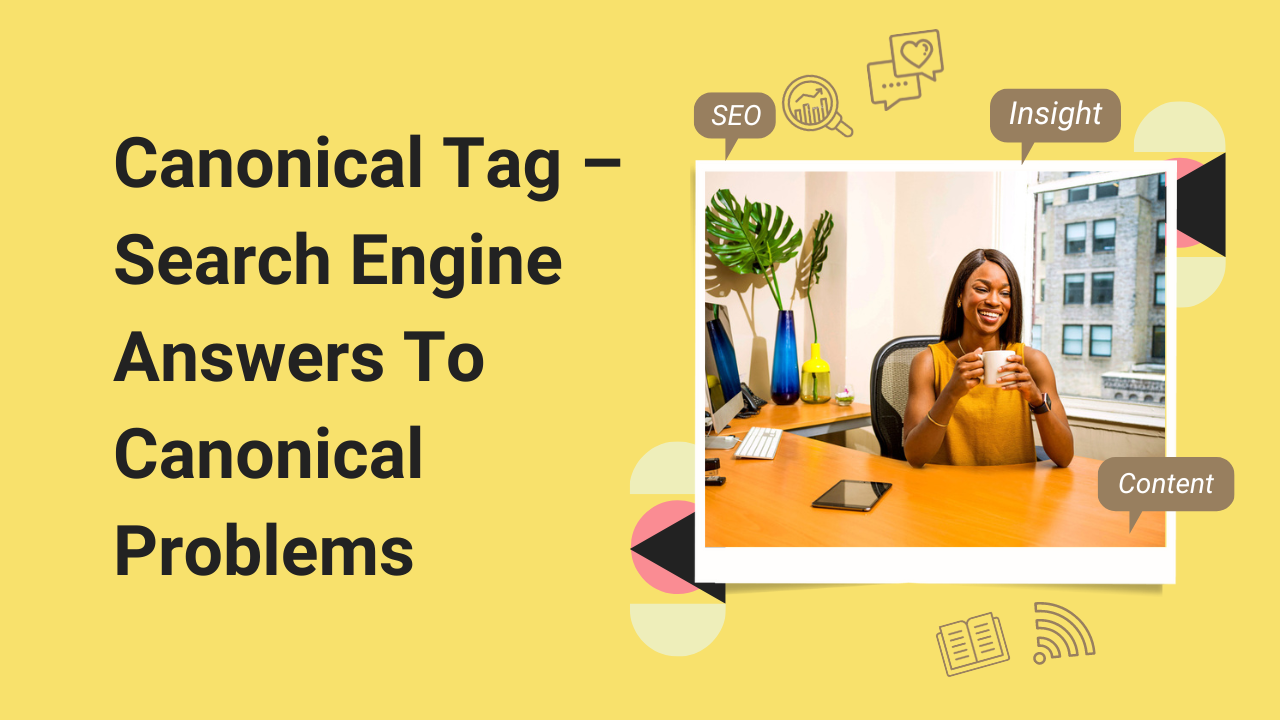
All three major search engines announced today “Canonical Tag” for resolving Canonical issue.
Lets What GoogleWebmaster Blog Says about this tag :
“we now support a format that allows you to publicly specify your preferred version of a URL. If your site has identical or vastly similar content that’s accessible through multiple URLs, this format provides you with more control over the URL returned in search results. It also helps to make sure that properties such as link popularity are consolidated to your preferred version.”
You can put this link tag inside the <head> section of the duplicate content URLs:
<link rel=”canonical” href=”http://www.example.com/product.php?item=mywidgets” /> where URL is the original one which you want to show to search engines.
Below are the some common question related canonical queries from Google Webmaster Blog
Is rel=”canonical” a hint or a directive?
It’s a hint (not command) that we honor strongly. We’ll take your preference into account, in conjunction with other signals, when calculating the most relevant page to display in search results.
Can I use a relative path to specify the canonical, such as <link rel=”canonical” href=”product.php?item=swedish-fish” />?
Yes, relative paths are recognized as expected with the <link> tag. Also, if you include a <base> link in your document, relative paths will resolve according to the base URL.
Is it okay if the canonical is not an exact duplicate of the content?
We allow slight differences, e.g., in the sort order of a table of products. We also recognize that we may crawl the canonical and the duplicate pages at different points in time, so we may occasionally see different versions of your content. All of that is okay with us.
What if the rel=”canonical” returns a 404?
We’ll continue to index your content and use a heuristic to find a canonical, but we recommend that you specify existent URLs as canonicals.
What if the rel=”canonical” hasn’t yet been indexed?
Like all public content on the web, we strive to discover and crawl a designated canonical URL quickly. As soon as we index it, we’ll immediately reconsider the rel=”canonical” hint.
Can rel=”canonical” be a redirect?
Yes, you can specify a URL that redirects as a canonical URL. Google will then process the redirect as usual and try to index it.
What if I have contradictory rel=”canonical” designations?
Our algorithm is lenient: We can follow canonical chains, but we strongly recommend that you update links to point to a single canonical page to ensure optimal canonicalization results.
Can this link tag be used to suggest a canonical URL on a completely different domain?
No. To migrate to a completely different domain, permanent (301) redirects are more appropriate. Google currently will take canonicalization suggestions into account across subdomains (or within a domain), but not across domains. So site owners can suggest www.example.com vs. example.com vs. help.example.com, but not example.com vs. example-widgets.com.
Sounds great—can I see a live example?
Yes, wikia.com helped us as a trusted tester. For example, you’ll notice that the source code on the URL http://starwars.wikia.com/wiki/Nelvana_Limited specifies its rel=”canonical” as: http://starwars.wikia.com/wiki/Nelvana.
The two URLs are nearly identical to each other, except that Nelvana_Limited, the first URL, contains a brief message near its heading. It’s a good example of using this feature. With rel=”canonical”, properties of the two URLs are consolidated in our index and search results display wikia.com’s intended version.
A yahoo Perspective
Yahoo search blog says that it is a way to fight duplication.
A few technical details:
- The URL paths in the tag can be absolute or relative, though we recommend using absolute paths to avoid any chance of errors.
- A tag can only point to a canonical URL form within the same domain and not across domains. For example, a tag on http://test.example.com can point to a URL on http://www.example.com but not on http://yahoo.com or any other domain.
- The tag will be treated similarly to a 301 redirect, in terms of transferring link references and other effects to the canonical form of the page.
- We will use the tag information as provided, but we’ll also use algorithmic mechanisms to avoid situations where we think the tag was not used as intended. For example, if the canonical form is non-existent, returns an error or a 404, or if the content on the source and target was substantially distinct and unique, the canonical link may be considered erroneous and deferred.
- The tag is transitive. That is, if URL A marks B as canonical, and B marks C as canonical, we’ll treat C as canonical for both A and B, though we will break infinite chains and other issues.
Thanks Google, Yahoo and Live For Helping Us Via One more Accidental Panelty Which occurs by you.
I think its very easy for us (dynamic product driven site owners) to specify a URL for search engines.
Happy SEO and Time to say GoodBye to Canonical.
About the Author
My name’s Semil Shah, and I pride myself on being the last digital marketer that you’ll ever need. Having worked internationally across agile and disruptive teams from San Fransico to London, I can help you take what you are doing in digital to a whole next level.



